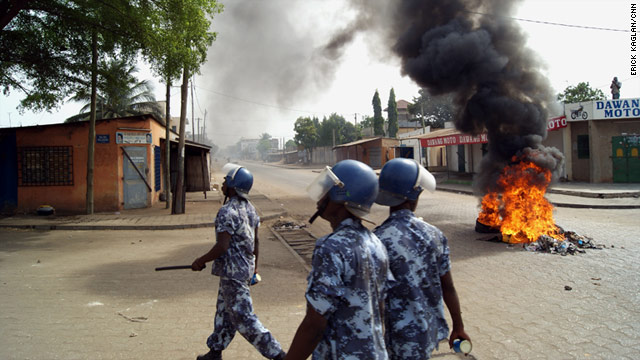
Violent clashes broke out in Togo’s capital, Lomé, on Thursday, June 26, as protesters confronted security forces over recent constitutional changes that critics say could allow President Faure Gnassingbé to remain in power indefinitely.
Demonstrators, responding to a call by Civil society groups and the “Hands Off My Constitution” coalition, erected barricades, burned tyres, and hurled projectiles at Security forces. In response, the police deployed military reinforcements used tear gas to disperse crowds, and made arrests, particularly in the opposition stronghold of Bè. Businesses across the city remained shut, with a heavy police presence blanketing key areas.
The unrest follows Gnassingbé’s recent swearing-in as President of the Council of Ministers—a role with no term limits—further consolidating his rule since taking office in 2005. The opposition has condemned the move as a “constitutional coup” and demanded the release of political prisoners and urgent economic relief for citizens. Although public demonstrations have been banned in Togo since 2022, the latest political developments have triggered rare mass mobilisation. Regional observers and critics warn the situation adds to growing instability in West Africa, where democracy faces increasing threats from constitutional manipulation and military interventions.
